20 the most successful inventions of that was an accident
Kiev cake, viagra, dynamite, and LSD. Imagine, but all this (and much more) was created by accident!
The invention is randomly generated, is always happy, though, and causes a lot of tricky questions like "what if?" or "How will it hold?". Sometimes the results and success can stun even the most hapless inventor who thought he "did not work" or "it did not". There are a lot of things, invented by chance or absurdity. For example, these 20 finds. Maybe they were in error, but without them the world would be very different.
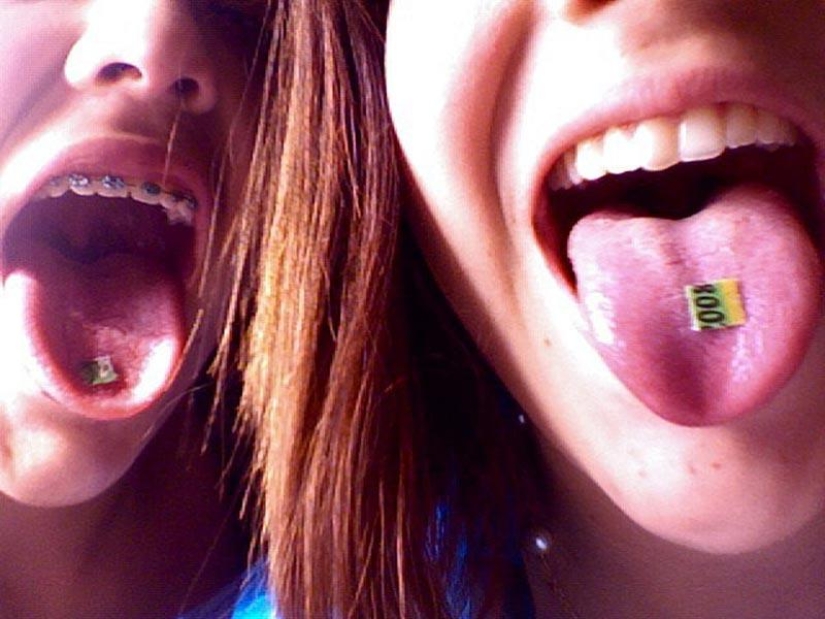
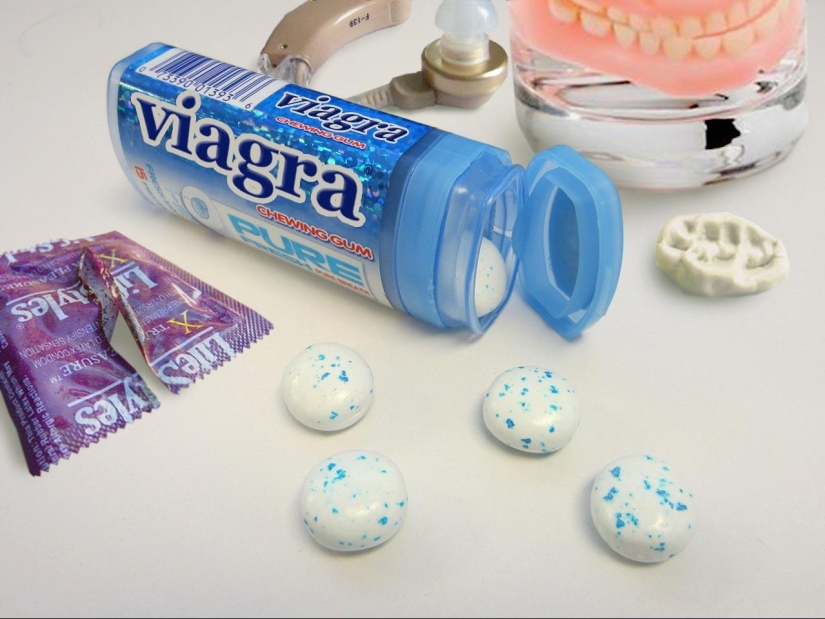
1. Viagra
Pfizer were trying to invent a medicine to treat heart disease. After clinical trials in 1992, it turned out that in this case, the medication is not helping. But there is a side effect that no one expected — the substance has a pronounced effect on the blood flow in the pelvic organs (in the penis as well) So there was viagra.
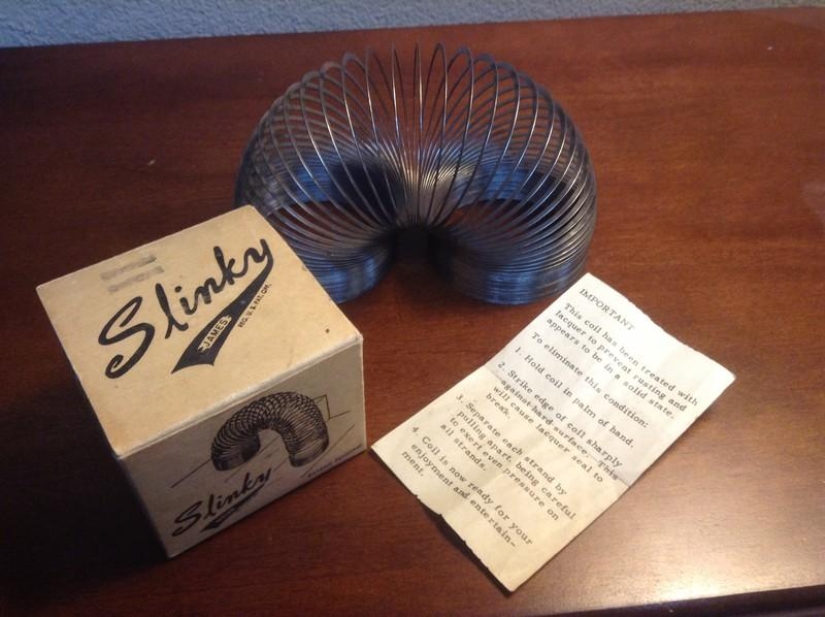
2. Slinky — slinky walking
Everyone loves this toy, even if you're not used to the name "slinky" and you insist on the Russian version — "rainbow". In any case, this invention came by accident. Naval engineer Richard Jones worked on the creation of the Registrar of power level. Through the work he had to experiment with the tension of the springs, but accidentally knocked one of the springs during operation. Falling to the floor, she "jumped" — and there was a toy slinky. I'm Sorry, "Rainbow".

3. Kiev cake
Once the pastry forgot to put in a cooler party egg whites, intended for biscuit. The next morning the chief of the biscuit shop Konstantin Nikitovich Petrenko with 17-year-old assistant pastry chef Hope chernogor to hide the error colleagues at your own risk shifted frozen protein cakes buttercream, sprinkled vanilla powder, the surface decorated with floral ornament. So there was a predecessor of the cake, which was destined for many decades to become the business card of Kiev.
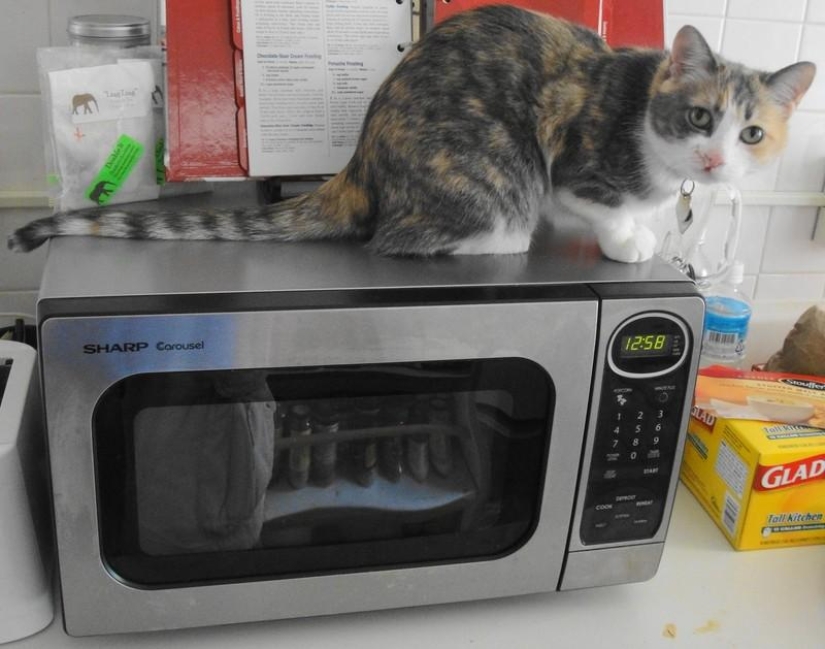
4. Microwave
What would we do without a microwave? But they could not emerge at all, if not for the fateful chocolate one scientist. Percy Spencer was an engineer at Raytheon Corporation. He was testing equipment for radar, when he discovered something amazing. While working, he noticed that due to microwave radiation chocolate bar in his pocket melted. To test his discovery, he put on the included magnetron popcorn, and begin to burst. So began the era of microwave ovens.
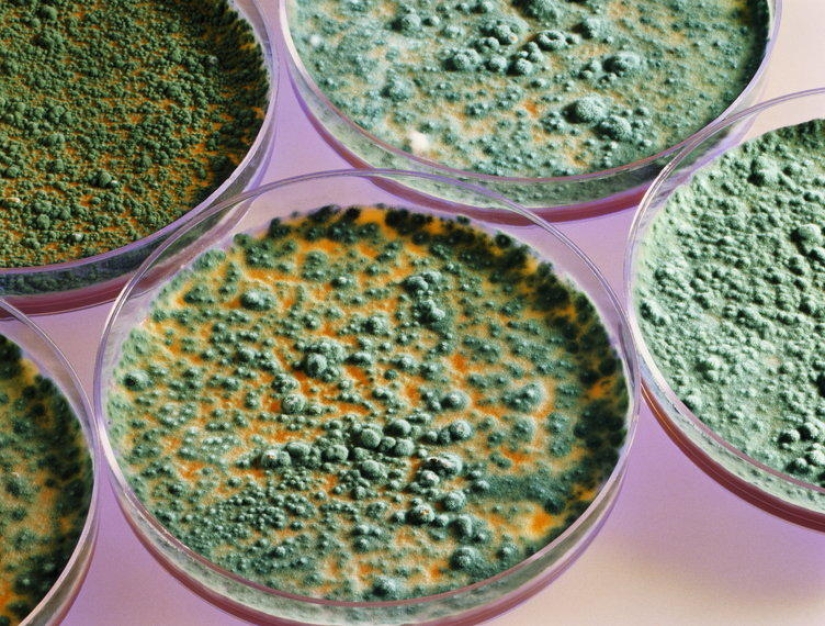
5. Penicillin
Classic "accidental inventions" — penicillin. British bacteriologist Alexander Fleming literally lived in his laboratory, and even eat at your Desk. And to get out of the scientist was neither the time nor the desire. So during the study staph bacteria and was the greatest discovery of one of the samples was murdered mold spores, which the Professor was full everywhere — even on the ceiling. Sensing that is on the verge of an amazing discovery, Fleming researched the mold and realized that it contains a penicillin, a substance, which was later saved many human lives.

6. Cookies with chocolate chips
This delicious invention, which also appeared unintentionally! Invented by Ruth Wakefield, who was the owner of the hotel Toll House Inn. One day when Ruth was baking chocolate chip cookies, she realized that she couldn't have cocoa which it is usually mixed with flour. Instead, she used pieces of chocolate, which is added directly to the dough. Chocolate is melted but not melted — and appeared cookies with chocolate chips.

7. Vulcanized rubber
Another substance, and which is indispensable for our everyday life and especially automotive industry. And, the opening accidentally — a young scientist Charles Goodyear decided to test what would happen if the rubber is mixed with chalk, lime or nitric acid. Well, no reaction followed. But after the rubber mixed with sulphur, and even accidentally dropped on a hot surface — scientist got elastic rubber, which is now on the production of everything from balls to car tires. After thinking about the result and improved method, in 1844 Charles Goodyear patented it, and named in honour of Vulcan, the Roman God of fire.

8. Potato chips
George Crum was a chef café in new York. Once he made the world's first potato chips that were cooked at the whims of a particularly picky client. The client wanted a plate of fried potatoes, but he didn't like the dish crunches, or rather, not crunches. The cram so tired of this big meanie that he cut the potatoes are incredibly thin slices and fry them until they become Oh‑Oh-Oh-very crunchy. The client was satisfied and asked for more.

9. Ice cream on a stick
We are talking about fruit ice cream, or even frozen juice on a stick, known and loved by millions. But the author of this product have discovered a way to make this ice cream, when he was 11 years old (it was in 1905). It poured sweet powder for making drinks in the water and forget the Cup on the street, in the cold season. And Yes, he also left stick for stirring. After all it was cold, boy the resulting product very much.
He showed it to all my friends and forgot about all of this. Remember my "invention" it is only after 18 years. So there was ice cream Epsicles. Well, other manufacturers began to produce their own versions of this ice cream. The result we see today and thousands of kinds of ice, juice, Lolly, and all others.

10. Note paper with adhesive edge
These colorful utility changed the lives of students all over the world for the better. Spencer silver was the accidental inventor of this beauty. Silver worked in a lab trying to come up with a strong adhesive residue. But accidentally created just the opposite — a sticky substance that was strong enough to lightly adhere to surfaces, but weak enough so that it can be safely removed. Someone from the lab thought to put this stuff on pieces of paper — and born this adhesive note paper, which uses the whole world.
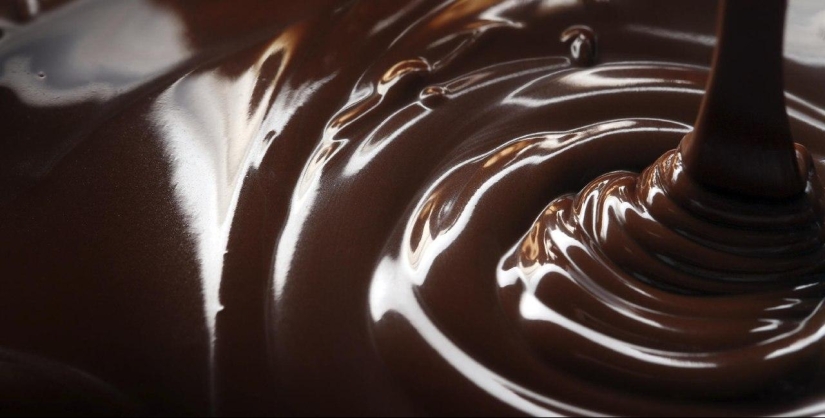
11. Chocolate spread
Italian confectioner Pietro Ferrero in the early 20th century was making candy and sold them at a local fair. He once took you so long that the heat of his chocolate treats melted. To sell something, Pietro smeared the resulting shapeless mass of bread and became the inventor of Nutella. Today, it is named after its founder, one of the most profitable in the world.
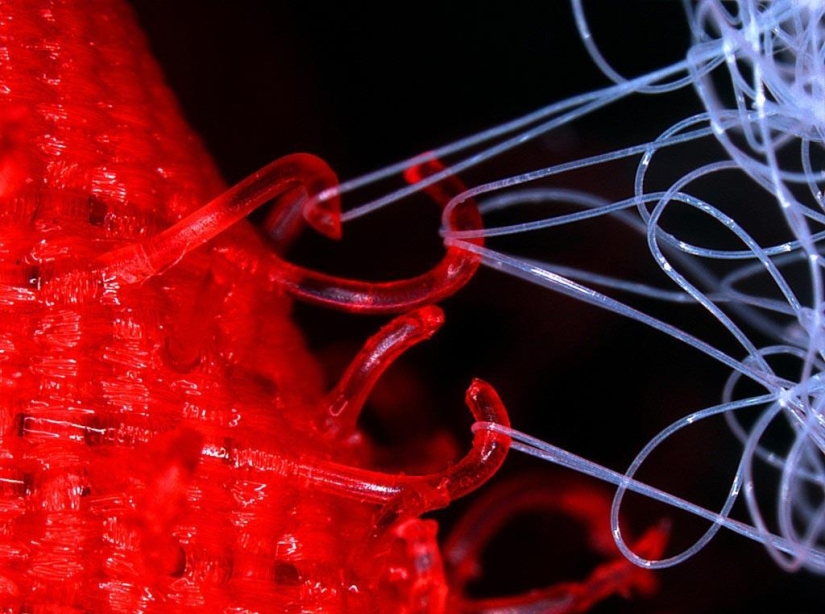
12. Velcro
In 1941, Swiss engineer George de Mestral decided to take a walk in the mountains with his dog. When he returned, he saw on his clothes a lot of seeds, which were covered with small hooks... George appreciated how tightly the natural Velcro stuck to the fabric. Was then created material, which is well known in the English-speaking environment as Velcro. The popularity of "Velcro" rose after the textile has been applied in the form of NASA. She became widely used in the manufacture of civilian clothing and shoes.
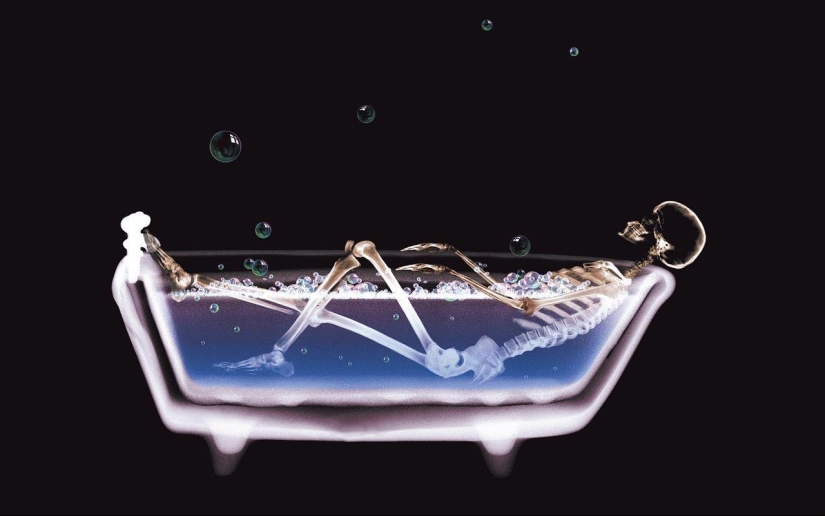
13. X-rays
Quite by accident in 1895, Wilhelm Roentgen put a hand in front of cathode ray tube and saw her image on the photographic plate. He noticed that the radiation of a cathode-ray tube passes through a fairly solid objects (or parts of the body), leaving a shadow. Moreover, the denser the object, the stronger the shadow. Only a few months later appeared the hands of the wife of a scientist who is very well known. In General, if not for the observation of x-rays, we would not be able to find out what happened to joint — whether it's just a bruise or a fracture, or something else.

14. Sugar substitutes
Saccharin, the artificial sweetener under the brand Sweet'N Low to 400 times sweeter than regular sugar. The recipe for its creation was invented by Konstantin Talberga, who studied at the time of coal tar. After a long day, he forgot to wash your hands before you sit at the table. Taking a muffin in hand and biting off a piece, he noticed that she was much sweeter than usual, and that he later took up. The scientist went back to the lab and began to taste it all substances have not yet found the source the sweet taste. Fahlberg patented saccharin in 1884 and began its mass production. Diabetics soon began using saccharin as a low-calorie sugar substitute.
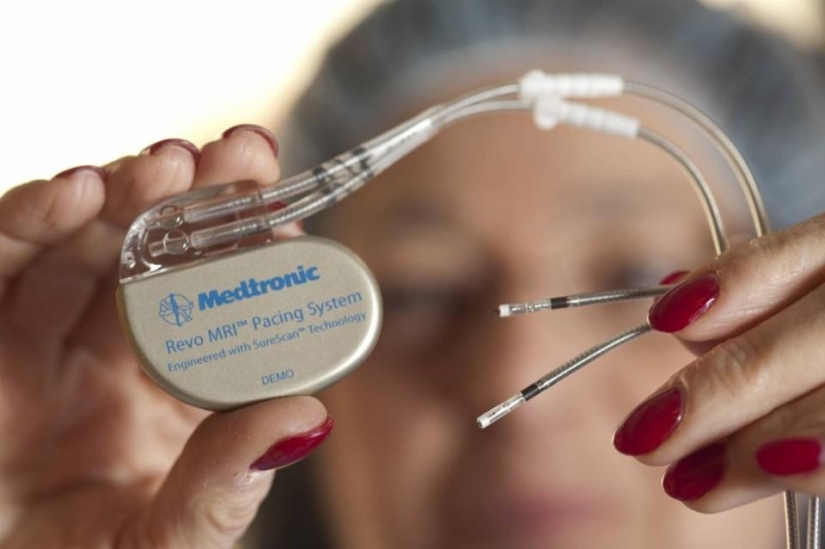
15. Pacemaker
In 1956, Wilson Greatbatch worked to develop a device that records the heart beats. Accidentally selecting the wrong resistor, he found that it produces electrical impulses. It made him think about the heartbeat and electrical activity of the heart. He thought that electrical stimulation would compensate for low heartbeat in those moments when the muscles of the body are unable to help themselves. He started his device, and in may 1958 the first pacemaker was implanted in a dog.
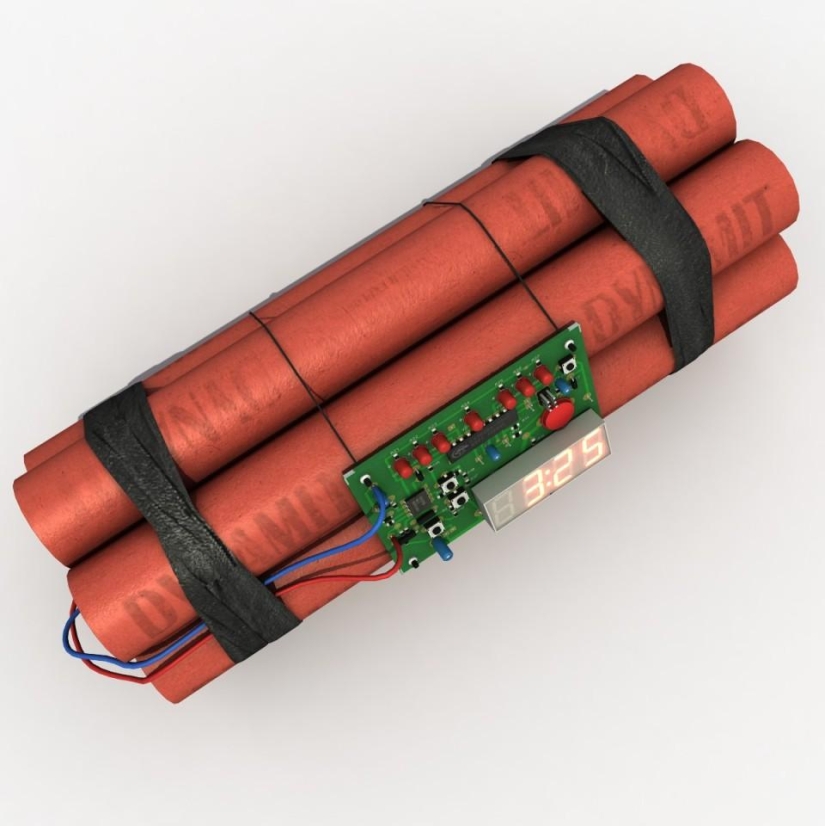
16. Dynamite
Nitroglycerin was widely used as an explosive, but had some flaws — he was unstable and often hurt "not to those who need it." Once in the laboratory of Alfred Nobel, working with nitroglycerin, dropped the bottle from his hands. But the explosion did not happen, and Nobel survived. It turned out that the nitroglycerin landed in the wood chips, which it has absorbed. So Nobel realized that mixing nitroglycerin with any inert substance or material helps to achieve its stability.
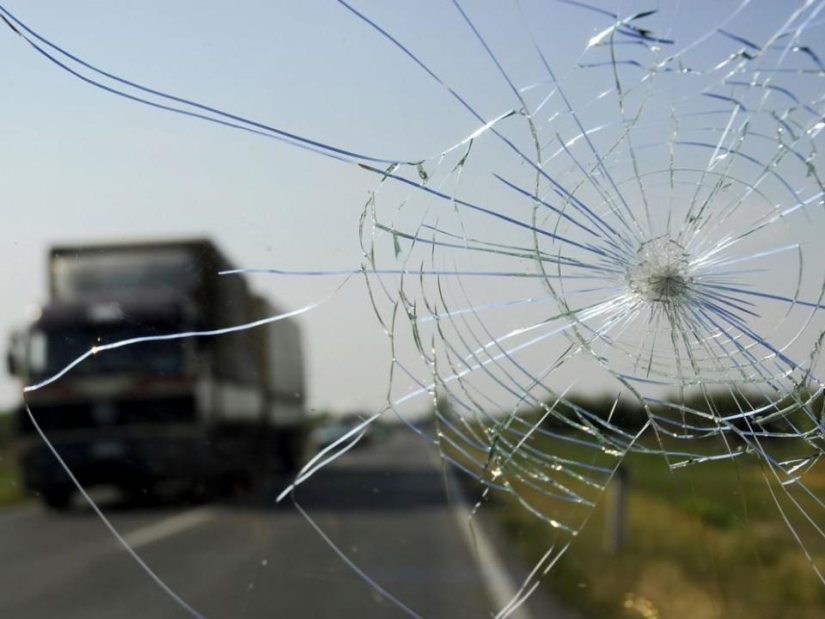
17. Safety glass
In 1903, Edouard Benedictus, a French scientist, dropped a glass vial filled with a solution of cellulose nitrate, on the floor. Vial is cracked, but not shattered. It turned out that the enveloping tube inside the liquid hold glass shards together. It was the first shatterproof glass is a product used today in the automotive industry, for the production of protective eyewear and more.
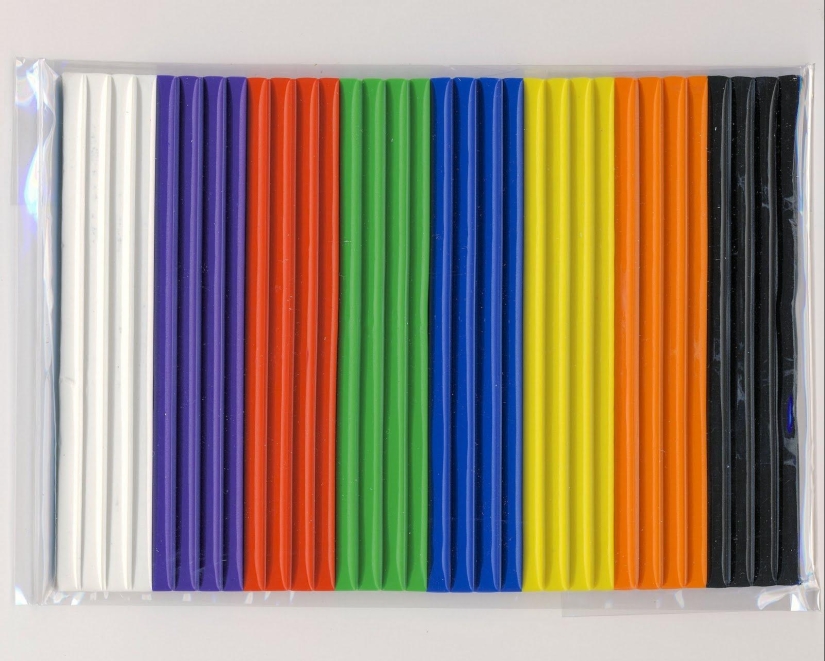
18. Clay
This substance was invented by Noah Maquiera, who sought to create a substance for cleaning the paper Wallpaper. They are often heated by fire, and soot, which remained on the walls, easily schedules with invented Noah Maquiera material. When there is vinyl Wallpaper that can be cleaned with a sponge need to use a purifier Wallpaper is gone. However Macvicar filed another idea for the use of its product: the teacher in the kindergarten offered to use a substance as a material for sculpting. Then the material was removed detergent component, was added to the dye and easily child-name — Play-doh (the"Plato") — so was born the clay.
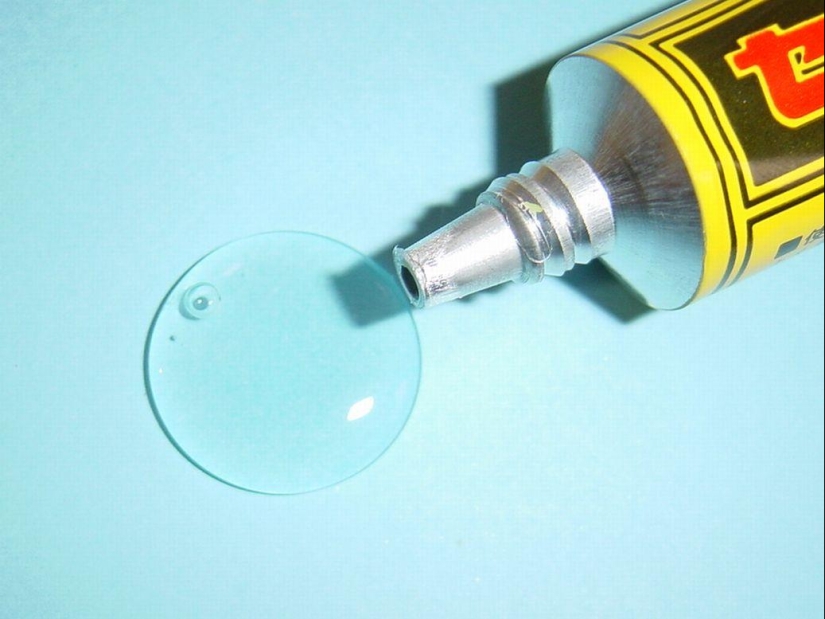
19. Superglue
This substance discreetly entered our lives, and now the glue helps to restore absolutely broken things. Few people know that cyanoacrylate, super glue so-called scientific, was invented during the Second world war, when needed transparent plastic for the sights. As for the knife, he did not come, but it turned out that the adhesive is immediately to glue everything. For example, he glued the wound, and the Americans used it in Vietnam. After that it began to be used in everyday life, we do so far.
20. LSD.
Probably, the legendary 1960s would not have been as revolutionary and creative time, if not the acid. In 1943 albert Hoffman conducted research using the derivatives of lysergic acid, a powerful chemical substance, first extracted from a fungus growing on rye. The results of his research are intended to be used in pharmacology. During the study, he accidentally took some of this substance inside and went to the first in the history of hallucinogenic acid trip. Intrigued, he had deliberately used the drug on 19 April 1943, that "more to understand" the effect of the drug. It was the first planned LSD experiment.
Keywords: Science | World | Invention | Event | Ridiculous
Post News ArticleRecent articles

It's high time to admit that this whole hipster idea has gone too far. The concept has become so popular that even restaurants have ...

There is a perception that people only use 10% of their brain potential. But the heroes of our review, apparently, found a way to ...
Related articles

There is a perception that people only use 10% of their brain potential. But the heroes of our review, apparently, found a way to ...

Have you heard of such a phenomenon as the doorway effect? Let's put it simply: have you ever walked into a room and immediately ...

Walking through this picturesque bridges, you can admire the views from these stunning views and breathtaking landscapes. We invite ...

New Year's is a time to surprise and delight loved ones not only with gifts but also with a unique presentation of the holiday ...